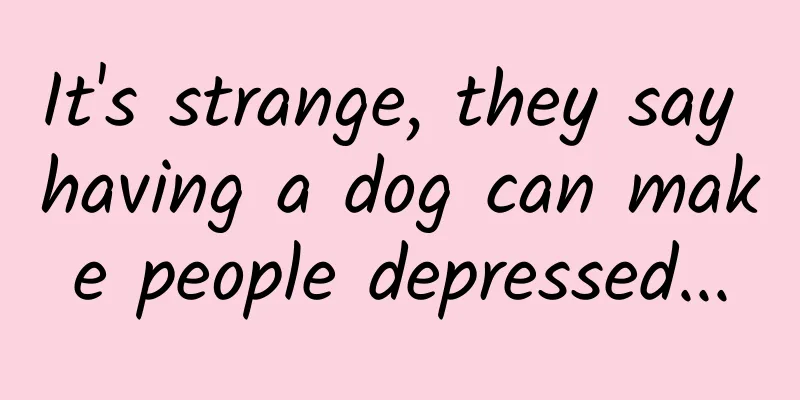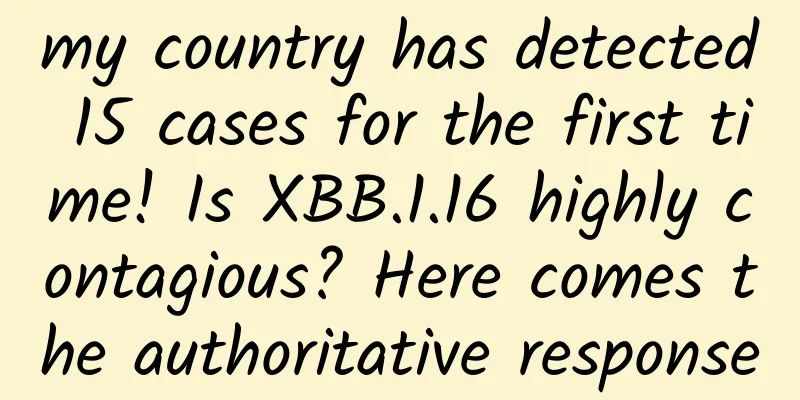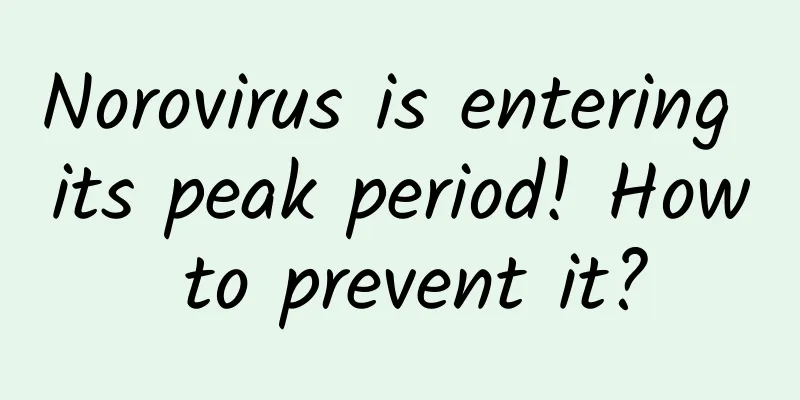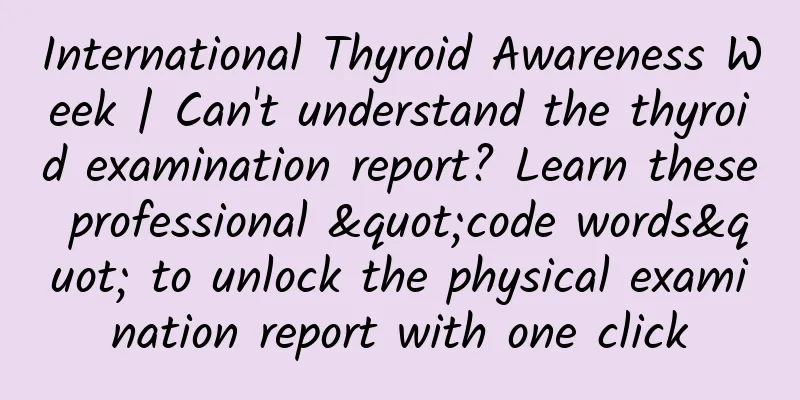I've already gotten the flu vaccine, so why did I still get the flu?
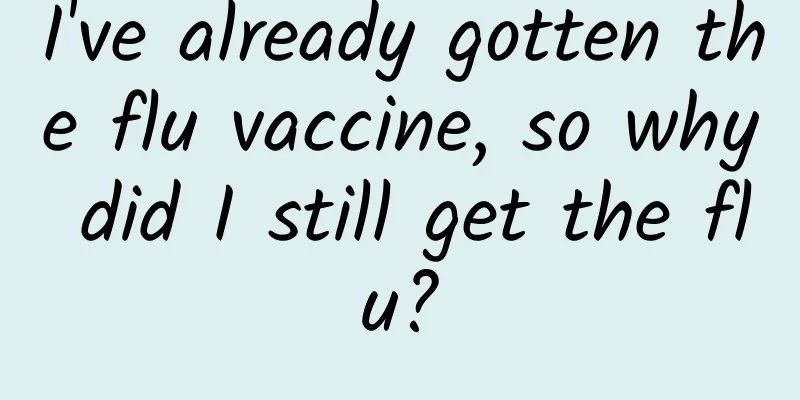
|
Vaccines are one of the greatest contributions of the scientific community to mankind in the past century. Through vaccines, humans have completely eradicated the smallpox virus that has been raging in the world for nearly a thousand years. Flu vaccines are an important weapon against flu virus infection. Universal vaccination can establish an immune barrier and significantly reduce the risk of people contracting flu and developing serious complications. However, not everyone who receives the flu vaccine will produce protective antibodies, so how does it work? The following key points are worth knowing: Image source: Pixabay ① Affected by many factors, including vaccine type, vaccination time, individual differences, etc. No vaccine can achieve 100% protection, which means that even if vaccinated, some people may still be infected with the influenza virus. One of the reasons is that it usually takes at least 1 to 2 weeks from vaccination to the production of sustained antibodies, which is the same as for friends who have not been vaccinated, so it is very necessary to get vaccinated before the epidemic comes. It should be pointed out that after receiving the influenza vaccine, do not immediately assume that you have been fully protected, and you still need to continue to take preventive measures, such as wearing a mask and washing hands frequently. ② Then let's talk about how vaccines protect people. We will skip the complicated and brain-burning immunology and give an example: if three people A, B, and C who are in close contact are all vaccinated at the same time, and A does not produce antibodies, but B and C both produce antibodies, then even if A is infected with the flu virus after vaccination, it cannot be transmitted to B and C. The virus is like having its legs broken. It is absolutely impossible to infect D who has not been vaccinated through B and C, and so on. The universal injection of vaccines is like a series of immune river nets built by humans, and the virus is like the fish in the river. After setting up a few more river nets, even the smallest fish will be intercepted, and fewer and fewer will slip through the net, until the last one can't escape! ③ Even if the infection cannot be completely prevented due to the continuous mutation of the virus, it can significantly reduce the risk of severe illness and death after infection. In a word, no matter how fast the virus changes, it is mainly through gene drift. Gene mutation cannot be too fast. Qualitative changes must occur on the basis of multiple quantitative changes. Therefore, even if the vaccine of the season cannot defend against all viruses, it may still stimulate the body to play some immune protection role. ④ Everyone's immune system responds differently to the vaccine. Some people's immune systems can quickly produce antibodies and effectively fight the flu virus; while some people's immune systems react more weakly and may take longer to produce enough antibodies. Even after being vaccinated, the vaccine recipient still needs to remain vigilant and pay attention to personal hygiene and protective measures. ⑤ In order to improve the prevention effect, it is recommended that the vaccine recipients receive the flu vaccine every year (because the flu virus mutates every year) and continue to take preventive measures, such as wearing masks, washing hands frequently, and maintaining social distance during the epidemic. At the same time, you should pay close attention to your physical condition after vaccination. If you have flu symptoms, you should seek medical attention in time and inform the doctor of your vaccination history. ⑥ What if I don’t get vaccinated myself and wait for others to get vaccinated to form a protective barrier to protect me? This involves a deep ethical issue of self-interest or altruism. After all, many of us have underlying diseases, and there are many elderly people, children, and some low-income people who cannot or cannot afford vaccines for various reasons. They need our protection even more. If you don’t get vaccinated and I don’t get vaccinated, you can’t effectively block the invasion of the virus within a certain area. Once the virus is transmitted to them, it may be fatal. Therefore, take action to protect our friends, the elderly, and children around us, and get better results with limited expenditures. Why not do it? ⑦ How do you know whether the vaccination has produced a protective effect? If there is no special need, it is generally not recommended to do the corresponding examination. After all, the cost of the examination needs to be paid by yourself in most cases. The following table shows several common virological and immunological indicator patterns after influenza vaccination. Source: Chongqing Science Writers Association Author: Xie Mingqin, Zou Jingbo Review expert: Li Hanbin Statement: Except for original content and special instructions, some pictures are from the Internet, for non-commercial purposes, and are only used as popular science materials. The copyright belongs to the original author. If there is any infringement, please contact us to delete it. |
<<: Is it true that chicks can be hatched without a shell?
Recommend
Angry Birds announces phasing out Windows Phone: no more updates
Windows Phone, Android and iOS are generally recog...
How does cloud computing do government business?
The "China Drug Electronic Supervision Netwo...
What does Baidu Xingfa account mean, and what is the difference between it and Baidu Port Framework account?
What does Baidu Xingfa account mean, and what is ...
Why does my girlfriend always think she is right? (Must read for boys)
One minute with the doctor, the postures are cons...
High-altitude “threading the needle” stunt: How are transmission lines mounted on tall iron towers?
How are transmission lines mounted on tall towers...
Ma Liangkun, a famous doctor at Peking Union Medical College: A must-have course for a good pregnancy, from pregnancy preparation to postpartum care, 40 weeks of full escort
Famous doctor Ma Liangkun from Peking Union Medic...
Are you happy after quitting smoking? Using my own experience, I will tell you the truth about smoking
This question is a bit complicated. Whether you a...
How big is the largest earthquake in human history? What is the limit of earthquakes?
The China Earthquake Networks Center officially d...
Zhaotong SEO training: Four-level analysis of new and old websites
I often see this question on Souwai Q&A, Zhih...
It's quite "bald". It turns out that you are not the only one who is bald, they are also bald
Spring is the season with the most hair loss in t...
Tiantian Dongting, who died with hatred, linked a past of grievances and entanglements
Yesterday, Alibaba announced that Ali Planet, a &...
Chinese version of iPhone 4/5/6 gathered together!
Yesterday, Meizu MX4 was officially released. Tog...
66 must-read tips for Taobao operations
What is Taobao SEO? What are PV, UV, impressions,...
He tried to hold back a sneeze and ended up tearing a hole in his trachea | BMJ Case Reports
This article is transferred from: Research Circle...




